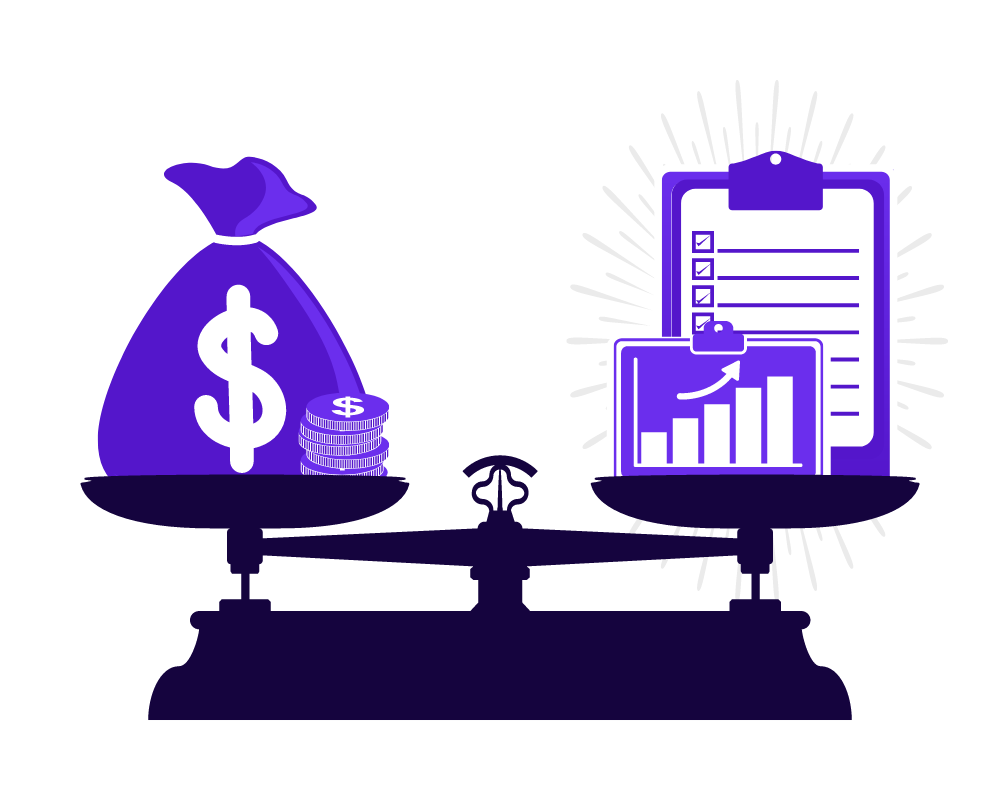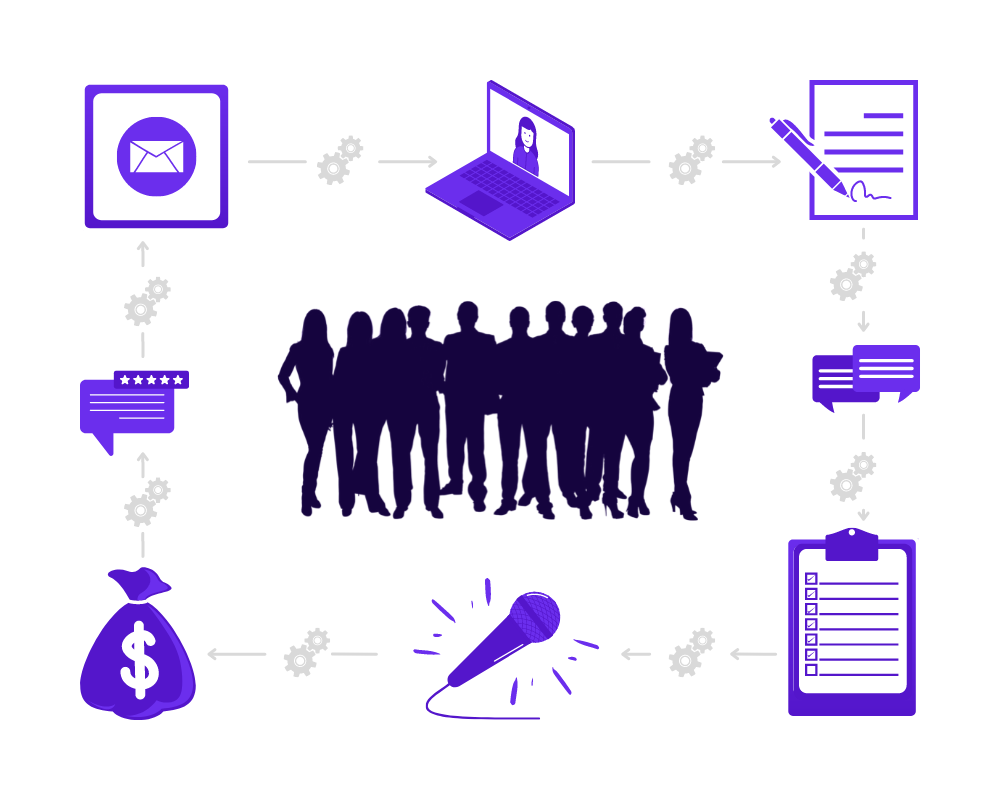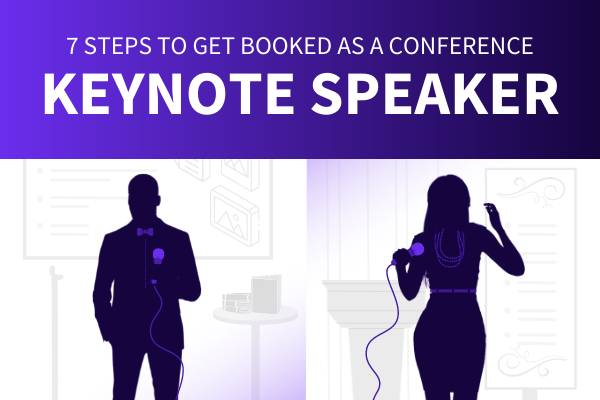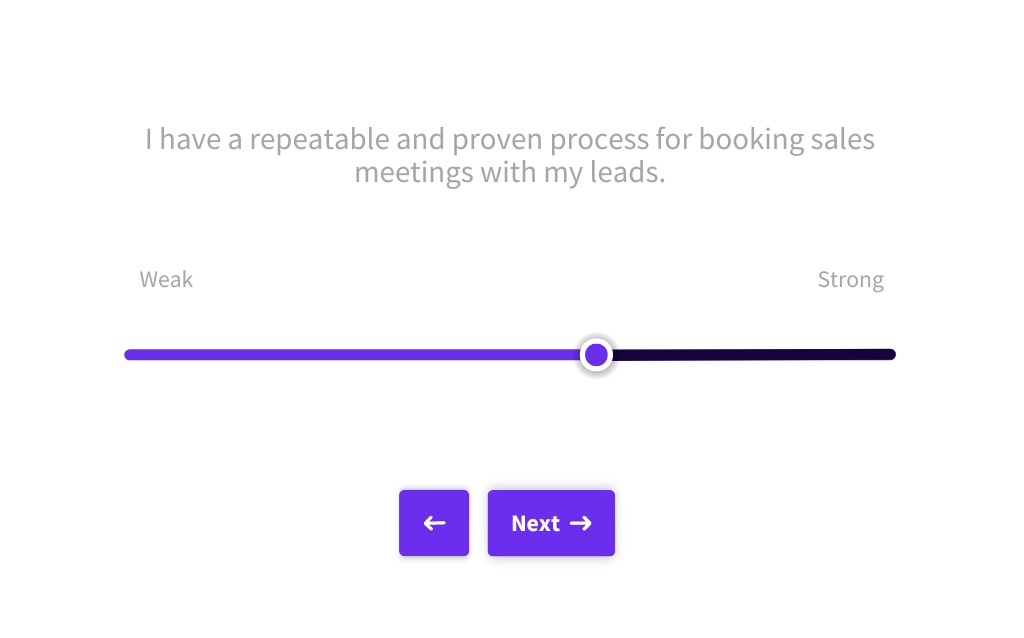If you want to stand out in your industry and attract high-paying clients, becoming a conference keynote speaker is a great way to reach your goals. Not only is this a chance to promote your expertise, but it’s also a powerful networking opportunity. That being said, you can’t expect a conference gig to fall from the sky. These can be really competitive, especially in certain industries. This is why you need to understand the 7 steps to get booked as a conference keynote speaker.
If you want to get on the big stage at conferences as a keynote, you need to have the right credentials. While a conference keynote speaker can come from anywhere, not everyone can be a conference keynote speaker. Without the right message and perspective, as well as speaking skills, you can’t expect to get booked by reputable conferences.
Fortunately, you’re in the right place. The right strategy and planning make all the difference. While submitting your speaker proposals and putting yourself out there is undoubtedly time-consuming, it doesn’t have to be complicated. With more events going virtual, you have to stay creative and adaptable to make an impact. Whether you’re focusing on building yourself digitally or networking in person, the goals remain the same.
Speaking at conferences as a keynote speaker not only moves your industry forward, but it’s also an unbelievable PR opportunity. As a professional (or aspiring) speaker, you already treat your speaking as a business. Like all businesses, it needs to be nurtured to grow and evolve. In this guide, we’ll use our expertise to share 7 steps to getting booked as a conference keynote speaker. You’ll be booking your first (or hundredth) gig before you know it!
- Identify your ideal clients and build an ICP.
- Research upcoming events in your area of expertise.
- Allocate time for prospecting each week (and stick to it!).
- Personalize your outreach to decision-makers.
- Prioritize value and solutions for potential clients.
- Maximize your systems to provide an amazing experience.
- Always ask for feedback, testimonials, and referrals.
Identify your ideal clients and build an ICP.
First, you can’t begin to get booked as a conference keynote speaker until you identify your ideal client. An ideal client is a realistic, scalable, long-term fit for your business. This doesn’t necessarily mean it’s your most demanding or profitable client. It’s the type of client you can build on, expanding to more opportunities in the future.

In the case of conferences, your ideal client might be members of a specific industry, leadership groups, and any organization that needs conference keynote speakers. However, it’s not a matter of finding who you can land. You need the right fit who you would be willing to work with again and again. This is where your ICP fits in.
An ICP is an ideal customer profile. This is an account of your perfect (ideal) customer. Not only does this let you tailor your keynote to these audience members, but you’re more prepared to market to them successfully. How do you build an ICP? Follow these steps:
- Data: Start with data about your industry and its demographics. What are the trends in your market? When you notice these highlights, you start to identify stand-out groups.
- Engagement: What does engagement look like with your ideal customer? Are they expensive to acquire? How long is the sales cycle? When you determine your engagement metrics, you paint a picture of your ideal customer—not just your average customer.
- Traits: Now, it’s time to outline key traits and demographics. What industry are your ideal clients in? What does this corporate structure look like, and where are they located? Most importantly, what are their needs?
- Create a profile: Last, build your customer profile to get a clear view of exactly who you’re trying to work with. This should be at the heart of your decision-making, marketing, and goals.
If you don’t have a clear ICP, it’s hard to get your marketing off the ground. It’s easy to feel like you need to market to everyone, especially if you’re just getting started. In reality, you’ll be more effective if you know who you’re talking to.
Research upcoming events in your area of expertise.
Second, you won’t get booked as a conference keynote speaker if you don’t know what events are upcoming in your industry. As we said before, conferences won’t fall into your lap. It’s up to you to find events that are a good fit for you. Before you start reaching out to potential opportunities, you need to get an understanding of what’s even out there.

While you should be a strong part of your industry’s online community, you also have to be proactive to find events. One option is to find a speaker agent to source gigs on your behalf, but this isn’t always the best option. The best way to find opportunities is through an online search, and it doesn’t take a lot of experience to get started.
Both new and seasoned speakers use search engines like Google to source potential events. You can search conferences by location, industry, and more. For example, “Atlanta healthcare marketing conference” is a great keyword to search if this is your niche and region. From here, keep a clear spreadsheet of opportunities that seem like a good fit for you. It’s a good idea to follow these event planners on social media so you’re always up-to-date with offerings and plans.
Alternatively, you can shop the competition. If you identify a handful of people who speak in a similar field to you, check out their profile to see where they’ve spoken in the past. Any conferences are likely to be a good fit for you as well. Add these to your spreadsheet for the future, keeping in mind timing and experience level.
Allocate time for prospecting each week (and stick to it!).
Next, you have to be willing to play the sales game. Though it’s hard to admit, sales is and always will be a numbers game. Namely, the more outreach you do, the easier it becomes to market yourself. While sales might not come easily to you at first, keep trying. Nobody will sell your speaking expertise as well as you.

To avoid sales burnout, set aside a specific amount of time each week for prospecting. Using a CRM system designed for speakers is the best way to stay on top of your sales funnel. Not only should you always know where leads are in your process, but you should never miss a follow-up opportunity. Luckily, you don’t have to do this heavy lifting on your own. SpeakerFlow’s CRM is built by speakers for speakers, making your life easier.
Your sales funnel won’t gain any traction if it doesn’t have high-quality leads. Remember to give each lead individual attention, allowing a strong foundation for real-world relationships. Speaking is a people business. You have to lead with your people skills, making sure conference decision-makers feel heard and respected.
Don’t be disheartened if your first few (or hundred) leads fall through the cracks. Opportunities don’t come easily, especially if you’re in a competitive field. The best speakers are those who use prospecting as a learning experience. It’s okay if you have to pivot, shift, and abandon your previous process. Just stick with it and be consistent.
Personalize your outreach to decision-makers.
Speaking of prospecting, let’s talk about your pitch. If you want to get booked as a conference keynote speaker, you need to be prepared for your pitch to compete with hundreds or even thousands of others. Everything from emails to phone calls and virtual meetings should make it crystal clear that you’ve done your homework. Not only do you see your event manager as a potential partner to work with long-term, but they don’t feel like a sales number on a spreadsheet. Speaking is a people business, remember?

When in doubt, focus your outreach on them. This isn’t about you. Yes, you’re sharing your expertise and your speech, but this isn’t what event planners want to hear. They want to know what’s in it for them. Will your speech be about something their audience cares about? Do you understand their goals and have real-world value? If you can’t confidently answer yes to these questions, it’s time to go back to the sales drawing board.
Avoid sending one-size-fits-all pitches to decision-makers. This might seem like a smart time-saver, but you could be burning bridges before you even start your climb. Event managers get a lot of outreach. They can identify when someone copied and pasted a one-size-fits-all message. Not only is this a turn-off, but it can feel disrespectful.
[hubspot type=cta portal=5815852 id=e68abcd9-8ad0-4673-81d2-450b59a97afc]
Prioritize value and solutions for potential clients.
With that in mind, your value needs to be positioned around your client’s needs and solutions. While your story is important in your marketing, it likely isn’t the most important thing to your clients. One of SpeakerFlow’s past podcast guests, Rich Mulholland, says it best. He says, “Our job isn’t to tell our story. It’s to sell other people a new version of their own story in which we play a part.”

Instead of focusing on you, make sure each pitch and touchpoint is a chance to deliver something relevant and real. If you build your working relationship on mutual trust and understanding, it’s much more likely you’ll be remembered. This is the most important thing when it comes to getting booked as a conference keynote speaker.
Your clients are solution-oriented. Some ways to build and share your value include:
- Offer something other speakers can’t (real industry experience, hands-on research, workshops, etc.)
- Share ways you’ve served other clients in the past through testimonials and social proof.
- Show don’t tell with engaging videos of your past experience.
- Create packages with add-on options like book downloads, Q&As, and workshops to boost your value to conference clients.
Your value comes not only from your unique perspective and experience. It also comes from how you sell yourself to potential clients. With experience, you’ll learn to leverage your value in powerful ways to attract high-paying conference clients.
Maximize your systems to provide an amazing experience.
Similarly, when making the most of your value, you also need to make the most of your time. As the saying goes, time is money. If you’re constantly juggling leads in your sales process, you’re undoubtedly going to lose some important connections through the cracks. According to SpeakerFlow’s industry research, the majority of professional speakers are solopreneurs. This means they need to be on their A-game when it comes to maximizing systems.

Luckily, we live in the golden age of digital tools. Your operating systems make the sale process stress-free for both you and your clients. With the SpeakerFlow CRM, for example, easily organize contacts, send contracts, and follow up with invoices in just a few clicks. Not only does this show clients you’re professional and organized, but it saves time so you can focus more on growing your business.
Your systems might take a bit of time to fall into place, but this is a worthwhile investment. While your goal might be to grow your team in the future, you should always be confident in managing different aspects of your business. This ensures you’re ready to train new team members, as well as stay on top of key leads.
As a business owner, automation is your new best friend. You can automate things like email marketing, follow-up reminders, scheduling, ads, accounting, lead generation, and so much more. It’s time to get honest with your time. Are you spending too much of it on the wrong things?
Always ask for feedback, testimonials, and referrals.
Lastly, if you want to get booked as a conference keynote speaker, you need to ask for feedback, testimonials, and referrals. This is the foundation of your social proof. Sure, you can talk about how amazing you are all day, but why should clients believe you? Having testimonials from past clients in their own words makes all the difference.

With 89% of marketers agreeing that customer testimonials and case studies are the most effective form of content when influencing purchases, don’t leave these on the table. Asking for feedback doesn’t have to be awkward. It should be a built-in part of your post-event process. Not only will your client likely request feedback of their own, but this is a chance to learn how you can improve.
When you take feedback and referrals seriously, you become a stronger speaker. Not only that, but your past clients are more likely to refer you to others in their industry. A great experience is one worth raving about. It’s also one worth repeating in the future, possibly securing you a future conference gig.
Ultimately, if you want to get booked as a conference keynote, you have to be prepared to kick up your strategy. These are highly competitive opportunities, and they don’t come easily. However, now is the right time to focus on marketing yourself and building your value.
The more you have to offer clients, the easier it is to stand out. We used our experience working with professional speakers of all backgrounds and levels to develop these tried-and-true 7 steps to success. The only question to ask now is whether you’re ready to take them?






